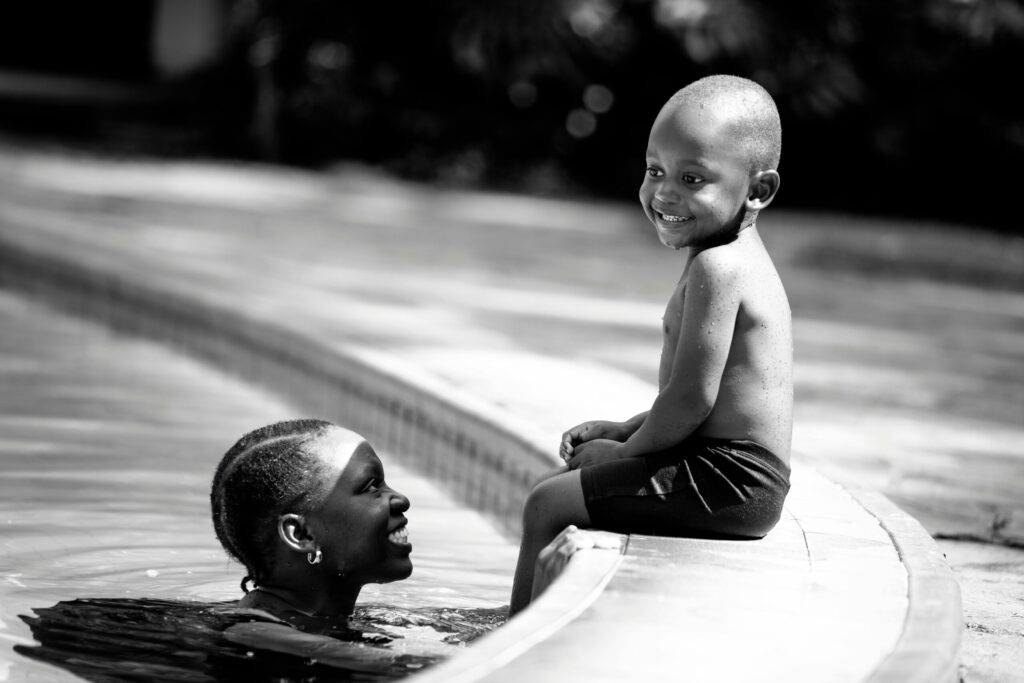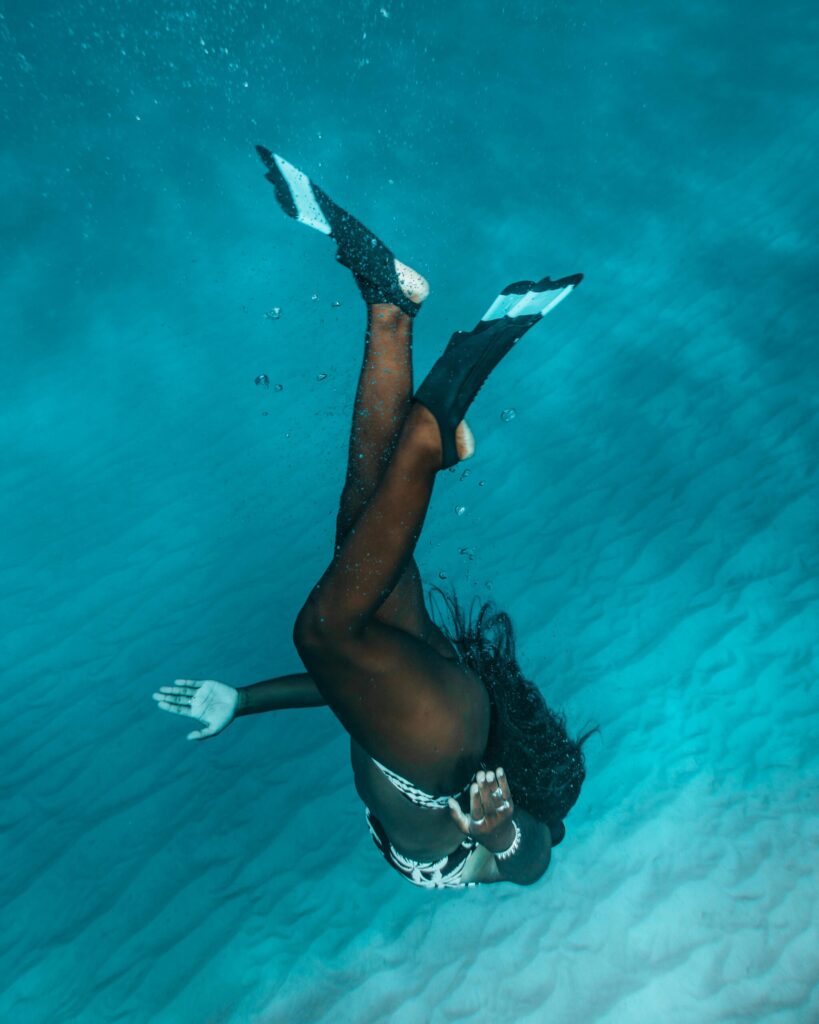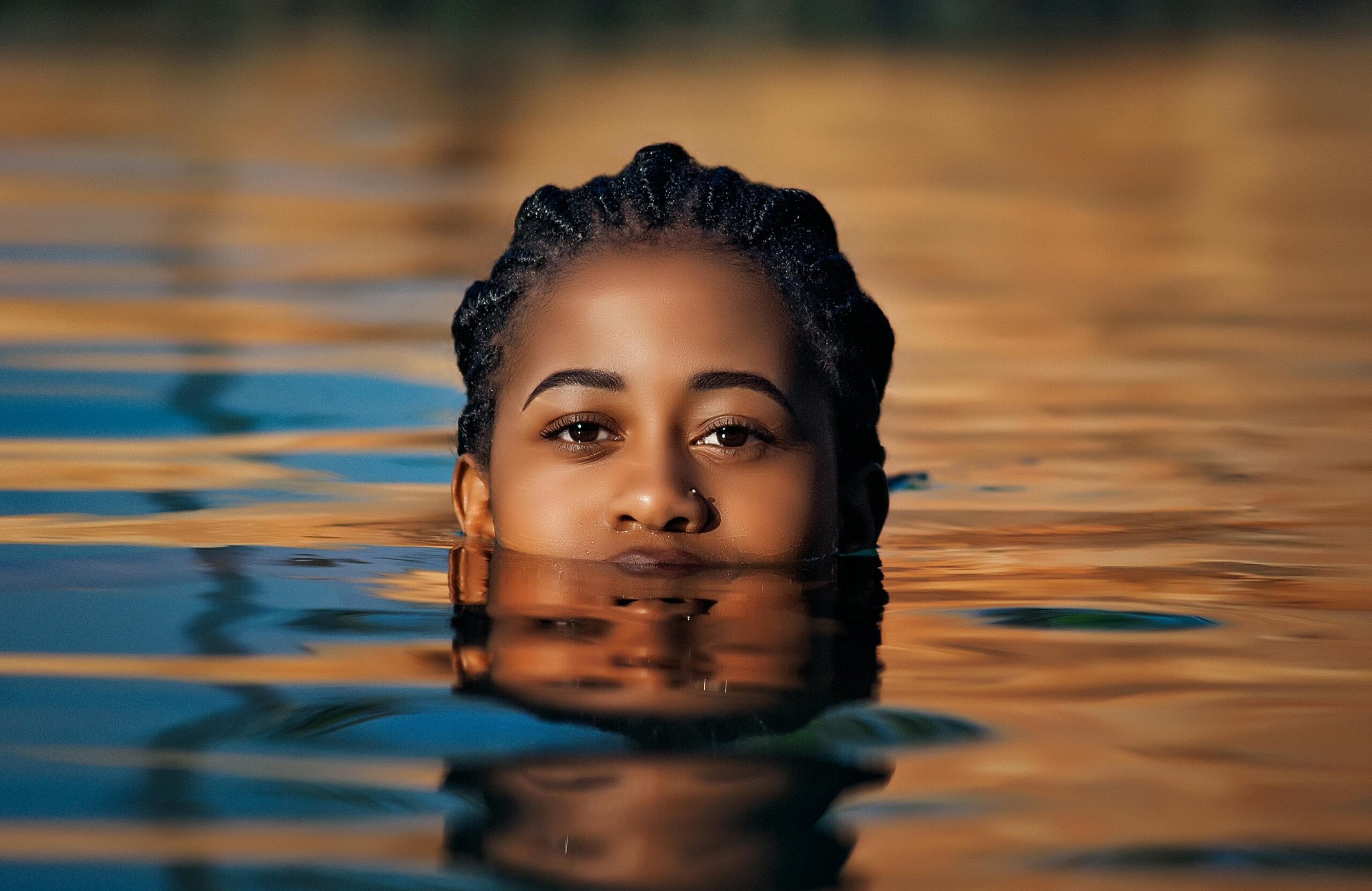Your cart is currently empty!
This month, my children and I started swim lessons.
Not just for fun.
Not just for fitness.
But for survival.
As a Florida resident—and truly, no matter where you live—I believe swimming should be a required part of every school curriculum. Especially for Black and Brown children, and especially for those who are neurodivergent.
FACING MY OWN FEAR
I’ll admit it: I’ve always had a fear of the water. Whether it came from my own childhood experiences or the generational fear passed down through our culture, I carried it quietly. But as I watched my neurodivergent children enter the water with open hearts—cautious, curious, and brave—I felt something shift. Their willingness softened my fear. Their trust calmed my body. And in their eyes, I saw possibility.


WHY IT MATTERS
In the United States, Black families have been systematically pushed away from safe water access, whether through segregation, trauma, and neglect. That history has created a deadly gap. According to the CDC, Black children between the ages of 5 and 19 drown at rates five times higher than white children. Autistic children face an even greater risk, especially when they wander near water and can not communicate distress.
We’ve seen the pain of this firsthand—through heartbreaking losses like the Shreveport Six in 2010, and more recently, the precious life of Trinity Eslinger, a young girl taken in by an ocean current.
These stories aren’t just heartbreaking headlines. They are wake-up calls.
What Our Families Need
As a mom of three neurodivergent young people—including one with autism and Noonan syndrome—I know the water poses unique challenges for our children:
**Sensory sensitivities can overwhelm or draw them in.
**Communication barriers make it hard to ask for help.
**Impulsivity can turn fascination into danger. And quickly.
But with the right support, we can change the narrative.
HOW TO START RECLAIMING THE WATER
- Begin lessons early for you and your child. I’m learning, too. Showing up together builds trust and connection.
- Look for trauma-informed, neurodivergent-friendly instructors. Ask about their sensory supports and modified techniques.
- Include water safety in care plans and IEPs. Don’t wait for a crisis. Plan now.
- Practice water awareness everywhere, not just at the pool. Lakes, tubs, creeks, bathtubs… it all matters.
- Use safety tools at home. Door alarms, visual reminders, flotation gear…it all helps.
- Locate free and local resources. Many YMCA locations in Florida offer diverse-abilities swim lessons tailored to children with unique abilities: ymcatreasurecoast.org+3ymcanwfl.org+3ymcacf.org+3. Additionally, partnering with Medicaid providers like Sunshine Health, several YMCA branches in Florida offer 8 free 30‑minute swim lessons for children and caregivers covered by certain Medicaid plans. Contact your local YMCA and inquire for your area: ymca.org
Reclaim water as joy. We don’t just survive in the pool. We use the water 2 heal, 2 play, and 2 thrive.
IN THEIR NAME, WE LEARN
Learning to swim is more than a skill—it’s a form of resistance and remembrance. It’s reclaiming what was once withheld. To Trinity, to the Shreveport Six, and to every beautiful soul we’ve lost, we honor your memory with action.
At Seeds 2 Nurture, we believe that swimming is part of the legacy we are building: one rooted in safety, joy, and liberation. Together, we can reclaim the water, and we will. One lesson, one family at a time.
~TY Marian
Reference(s):
Diverse abilities swim lessons. (n.d.). YMCA of Northwest Florida. https://www.ymcanwfl.org/diverse-abilities-swim-lessons?utm_source
(n.d.). YMCA of the USA – A Leading Nonprofit Organization. https://ymca.org


Leave a Reply